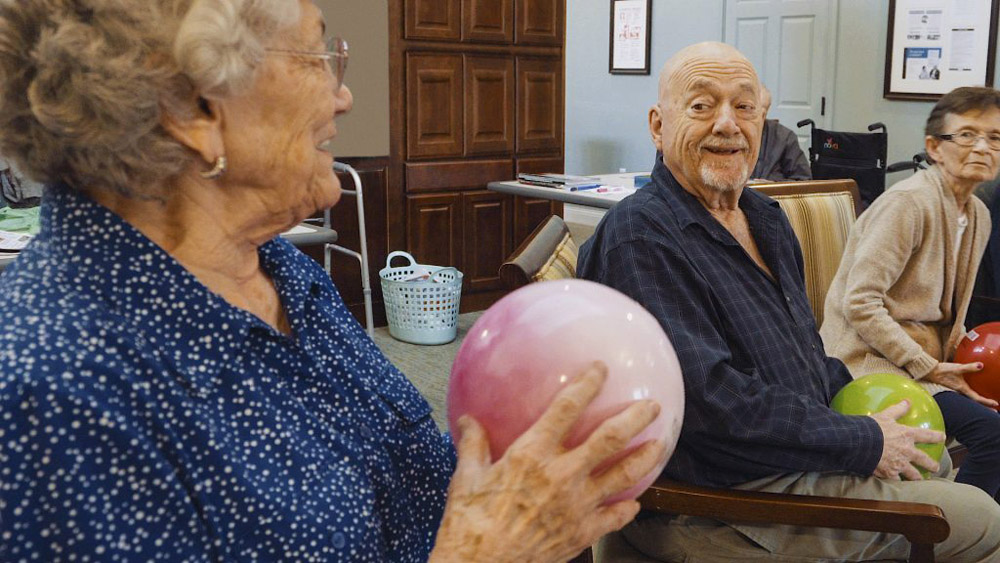Memory Care Explained: Understanding Services That Make a Difference
Memory care solutions have become a vital source for people coming to grips with cognitive impairments, such as Alzheimer's and mental deterioration. These customized programs not only offer protected settings and skilled team but likewise integrate tailored tasks that enhance cognitive engagement and psychological health. Recognizing the array of therapies and assistance systems available is essential for households steering via these facility choices. As we discover the numerous elements that add to efficient memory care, it ends up being clear that the appropriate choices can substantially influence the quality of life for both citizens and their families.
Introduction of Memory Care

Specialized Therapies Available
Several specialized therapies are offered within memory care services, each customized to attend to the unique challenges encountered by individuals with cognitive disabilities. These treatments aim to improve cognitive functioning, advertise emotional well-being, and improve total top quality of life.One favored approach is memory treatment, which urges people to review previous experiences via photos, music, and familiar objects. This approach can stimulate memories, boost discussion, and foster connections with caretakers and peers.Another effective treatment is cognitive stimulation therapy (CST), made to involve individuals in mental exercises that advertise cognitive abilities and social communication. CST sessions frequently involve problems, quizzes, and discussions, giving structured cognitive challenges that assistance preserve mental agility.Art and songs treatment are also integral components of memory care. These treatments leverage innovative expression to facilitate communication and emotional release, usually profiting those that might have problem with verbal communication.Additionally, animal-assisted therapy has actually acquired recognition for its capability to decrease anxiety and promote social interaction through the presence of therapy pets. Collectively, these specialized treatments play an important duty in boosting the lives of people with memory impairment, fostering an encouraging and enhancing setting.
Involving Tasks and Programs
Engaging activities and programs play an essential function in memory care services, using individuals promoting chances that promote cognitive involvement and social communication. Customized to the one-of-a-kind demands of homeowners, these tasks include arts and crafts, music therapy, memory video games, and exercises. Such programs are created not only to improve cognitive function however likewise to foster a feeling of achievement and community (Memory Care Charlotte).Social communication is a critical component of memory care, as it helps in reducing sensations of seclusion and clinical depression commonly experienced by individuals with memory problems. Team activities motivate communication and cooperation, producing an atmosphere where citizens can share experiences and build relationships.Moreover, engaging activities can be adapted to differing degrees of cognitive capacity, making certain that all participants can participate meaningfully. Staff members learnt memory care help with these programs, offering support and motivation tailored to each person's capabilities.Incorporating acquainted regimens and interests into these tasks can even more enhance their efficiency, aiding locals get in touch with their past and keep a feeling of identification. On the whole, a well-rounded variety of appealing tasks enhances the lives of those in memory care, adding to their overall well-being and high quality of life
Importance of Household Assistance

Choosing the Right Center
Picking the best memory care center is an essential decision that calls for cautious factor to consider of different elements. Examine the level of care your liked one demands. Facilities vary in their offerings, from fundamental help to specialized memory care programs customized for problems such as Alzheimer's and other dementias.Next, think about the environment of the facility. An inviting, secure, and comfy ambience can significantly influence a local's well-being. Check out possibility centers to evaluate their cleanliness, safety functions, and general atmosphere. Observe personnel interactions with homeowners, as caring and qualified caregivers are fundamental to top quality care.Additionally, ask about the center's staffing ratios and qualifications. Memory Care Charlotte. Enough staffing guarantees customized interest and timely feedbacks to residents' needs. Examine the accessibility of tasks and programs that promote involvement, socializing, and cognitive stimulation, as these are vital for maintaining high quality of life
Often Asked Concerns
What Is the Cost of Memory Care Services?
The cost of memory care services differs considerably based on area, facility kind, and level of care called for. Typically, households can anticipate to pay in between $4,000 and $7,000 each month - Dementia Care. These costs commonly encompass housing, meals, personal care, and specific support for memory-related conditions. It is necessary for family members to research study alternatives completely and take into consideration financial help programs, insurance protection, and potential long-term care planning to handle these prices effectively

Just How Is Staff Educated to Manage Memory Care Citizens?
Staff training for memory care locals is comprehensive and specialized, focusing on comprehending the distinct demands of individuals with cognitive impairments. Programs typically include education on dementia-related problems, communication methods, habits monitoring, and emotional assistance techniques. Training also emphasizes the importance of creating a risk-free and revitalizing environment. Recurring education and hands-on experience assurance team are equipped to supply caring care, fostering self-respect and regard for residents while promoting their general health.
Are Memory Care Facilities Certified and Controlled?
Yes, memory care facilities are subject to licensing and regulatory oversight, which differs by state - Alzheimer’s Care. These policies assure that centers meet specific requirements connected to security, care high quality, staffing, and resident rights. Usually, state health and wellness departments or regulatory bodies perform inspections and keep an eye on conformity to shield citizens with memory impairments. Potential residents and families need to validate a facility's licensing standing and regulatory background to establish adequate care and support services are given
Can Locals Individualize Their Living Areas?
Yes, homeowners in memory care centers usually have the possibility to individualize their space. This personalization may consist of choosing designs, organizing furnishings, or displaying personal valuables, which can aid develop a feeling of experience and convenience. Such customization is encouraged to advertise originality and improve the emotional wellness of citizens. Nonetheless, any kind of modifications are usually subject to center standards to guarantee safety and keep an encouraging setting for all residents.
What Are the Seeing Hours for Household Members?
Visiting hours for household participants are normally developed to guarantee that homeowners get proper care while preserving purposeful links with their liked ones. These hours may vary by center, however typically, visitation is permitted throughout designated times, commonly in the mid-day and early night. Memory Care. It is a good idea for relative to validate certain checking out hours with the facility to assure conformity with any type of plans in position, as well as to boost the total experience for both homeowners and visitors